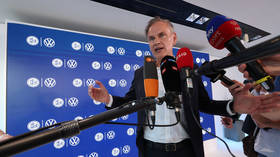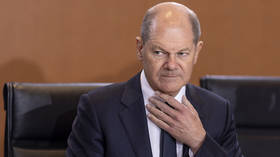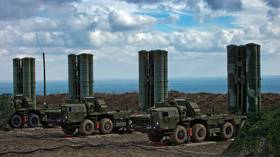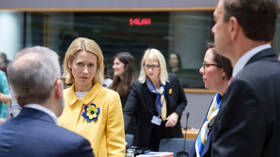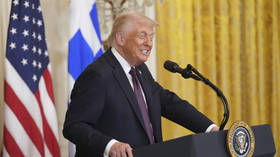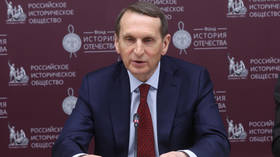Germany’s Scholz wants a call with Putin – Die Zeit

German Chancellor Olaf Scholz wants to speak by phone with Russian President Vladimir Putin, Die Zeit newspaper has reported, citing government sources. Scholz has been endorsing diplomatic efforts to end the Ukraine conflict, including inviting Moscow to a peace summit.
The German chancellor hopes for the call to take place ahead of the G20 meeting in Rio de Janeiro, Brazil in mid-November, Die Zeit reported on Monday, adding that the conversation has not yet been requested.
“Our last phone call was in December 2022 — before that we used to speak more frequently,” Scholz told Politico in March.
The last time the two politicians spoke was at Berlin’s behest, according to the Kremlin. During the hour-long call, Putin explained the logic behind Russia’s military operation against Kiev and stated that the Western policy of arming and training Ukrainian troops was “destructive.” Scholz urged Putin to withdraw troops from Ukraine.
“My last telephone call was some time ago. But I plan to speak to Putin again in due course,” Scholz told Koelner Stadt-Anzeiger newspaper in May 2023 when asked about his contacts with the Russian leader.
In October 2022, Scholz told Deutschlandfunk radio that the tone of his conversations with Putin “is always friendly, even if we have very different views on the matter,” while warning that no one should “harbor any illusions” that this will bring swift results.
In September, Scholz stressed that peace should be achieved in Ukraine as soon as possible, and that a conference on finding a diplomatic solution to the conflict should be held soon, with Russia invited this time.
The international meeting Switzerland hosted in June to address the ongoing hostilities failed to deliver any concrete results, with many nations in attendance refusing to support its joint declaration. Russia was not invited.
Germany is the second-biggest donor of military aid to Ukraine, having provided over €10 billion ($11.19 billion) in supplies between January 2022 and June 2024, according to the Kiel Institute for World Economy. Berlin’s proposed 2025 budget, however, aims to cut military aid to Kiev by 50%, Reuters reported on Wednesday after reviewing the draft.
The German economy was particularly hurt by its decision to reject Russian natural gas. Cheap fuel supplied by its eastern partner via pipelines had driven the leading EU economy for decades prior to the Ukraine conflict.
Kremlin spokesman Dmitry Peskov noted last month that Moscow does not see the proper conditions for beginning peace talks to settle the conflict, and that it has yet to hear any statements on the matter from “the country that is actually directing this entire process,” apparently referring to the US.
